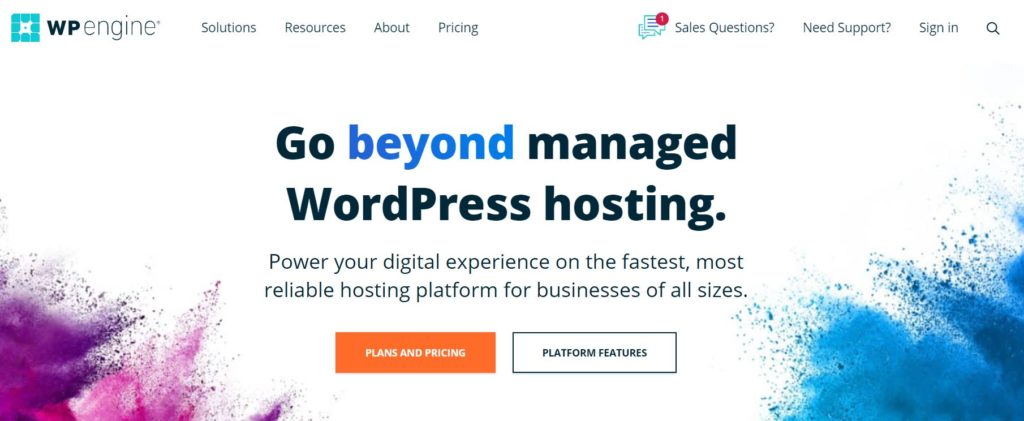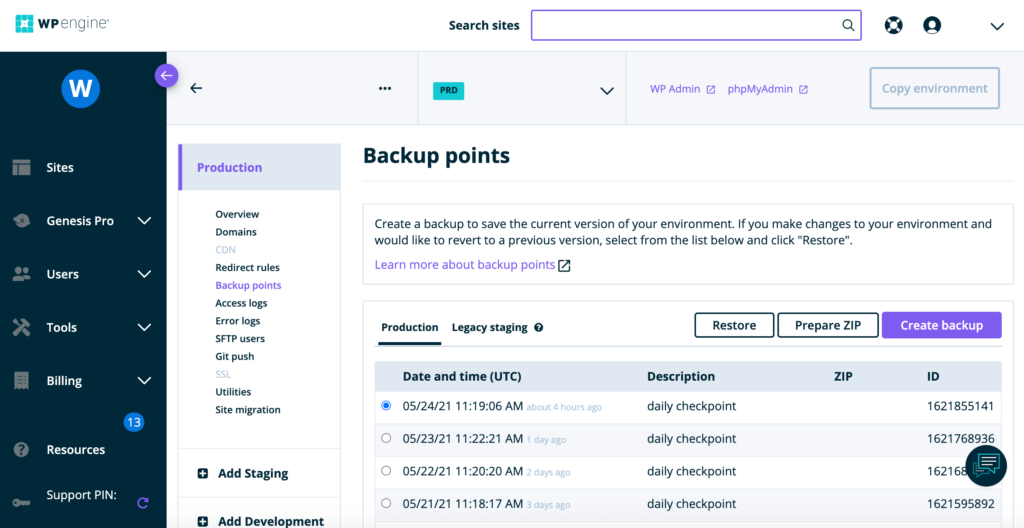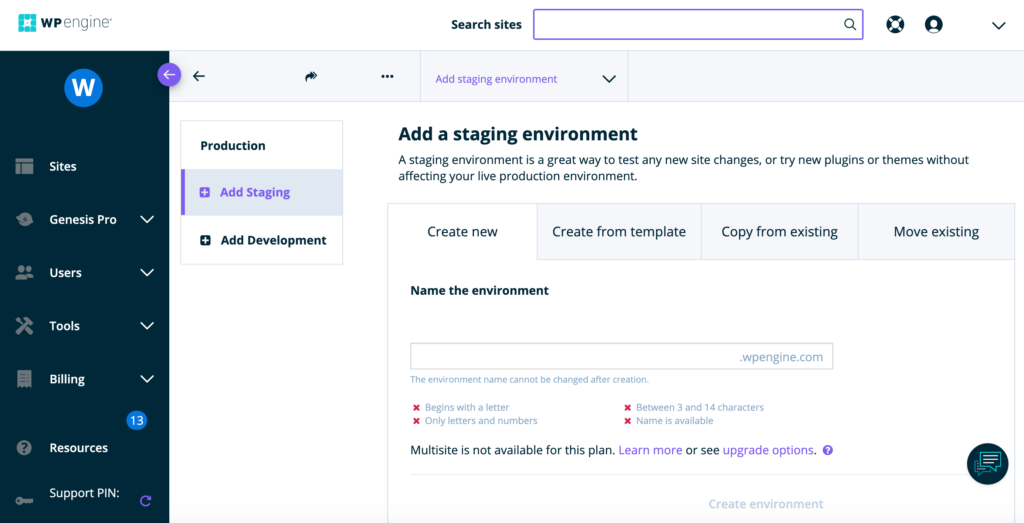As a busy website owner, it’s easy to fall behind on day-to-day maintenance. However, if you’re not creating regular backups, monitoring your site’s security, and performing other essential tasks, then you may be heading towards disaster.
If you’re buckling under the weight of your to-do list, then a managed hosting plan might be the answer. By opting for managed hosting, you can be confident that all of these time-consuming tasks are being handled by a professional.
In this post, we’ll discuss what managed WordPress hosting is, and why it’s different from other web hosting plans. We’ll then share five reasons why a managed service provider may be the solution to all of your WordPress woes. Let’s get started!
An Introduction to Managed Hosting
When it comes to launching your website, there are various WordPress hosting options to choose from. These plans are designed to suit different budgets, requirements, and levels of technical expertise.
As an example, providers often pitch shared hosting as a budget-friendly option for startups and small businesses. At the other end of the scale, dedicated hosting is widely recognized as a good option for business-critical projects, and websites that have more demanding technical requirements.
Although every hosting provider is different, many companies offer each plan as either a managed or unmanaged service. If you opt for the latter, your service provider will be responsible for maintaining and securing the server, but you’re responsible for maintaining your website. This includes performing critical tasks such as creating regular backups and scanning your site for malware. You may be renting space on the provider’s server, but with unmanaged hosting you’re largely on your own.
Alternatively, you may prefer managed hosting:
This is where your provider adds a number of features and services that are designed to make your site easier to manage, secure, and optimize. Every company is different, but many managed hosting providers offer automatic WordPress core updates, backups, and launch readiness assessments.
5 Reasons to Choose Managed WordPress Hosting in 2021
There are no set rules for what a managed hosting plan should include. Different providers will prioritize different features, or tailor their offerings based on their target audience.
Before purchasing a plan, it’s important to do your research so you know exactly what you’re getting. However, there are some features that you can generally expect from the majority of managed providers. With this in mind, let’s look at five reasons why you should consider a managed plan in 2021.
1. Automated Backups
Your website may contain dozens or even hundreds of pages, posts, and comments. Some sites even record visitor information. For example, if you run a membership site then your content might include usernames and passwords. If you don’t create regular backups, then you risk losing all of this content forever.
Something as simple as a database error could spell disaster for your website. WordPress is also a favorite target amongst hackers, with Wordfence recording 4.3 billion attempts to exploit vulnerabilities in a single year. If someone did manage to gain access to your site, they might delete all of your content and you might be unable to retrieve it.
By creating regular backups, you’ll always have something to restore, even in the worst case scenario where a malicious third party hacks into your site and deletes all of your content. To make your life easier, some WordPress hosting providers like WP Engine offer automated backups.
Ideally, your provider will offer these backups at no additional cost, with the added freedom to back up your site manually as and when required:
When choosing a managed package, it’s also smart to check where your backups will be stored. For added security, we always recommend choosing a provider that uses offsite storage. For example, WP Engine stores all backups offsite on Amazon S3.
2. Performance Optimization
When you opt for a reputable managed WordPress hosting provider, you’ll get an environment that’s optimized for this popular Content Management System (CMS). For example, WP Engine’s managed packages come with a proprietary layer that’s based on thousands of code rules that aim to provide the best possible performance for your WordPress website.
Many managed plans also come with built-in performance boosting features like caching. Caching means that a copy of your website is stored on the visitor’s computer. Your content can then be loaded locally whenever this person pays you a repeat visit. This can significantly reduce page load times and provide a better user experience.
There are some free caching plugins available, but many require a significant amount of configuration. By opting for a plan that provides built-in caching, you can be confident that you’re getting the greatest performance boost with minimum manual configuration.
Other common performance-boosting features include a built-in Content Delivery Network (CDN), which is a global network of servers. Whenever someone visits your site, the CDN will deliver your site’s content from the server that’s physically located closest to that visitor. This can reduce latency and boost your page loading speeds.
3. Enhanced Security
In a recent survey by Patchstack, over 70 percent of agencies, developers, and freelancers confirmed that they are increasingly worried about their websites. In fact, 25 percent of respondents even stated that they had to deal with a hacked site in recent months. Security is clearly a huge concern for WordPress website owners.
With unmanaged hosting plans, it’s your responsibility to protect your site against digital threats, including hackers. While there are steps you can take to keep your site safe, there’s no such thing as too much protection.
Many managed hosting providers have systems in place to help defend your website. This often includes firewalls that automatically detect and block malicious traffic, which is an effective defence against Distributed Denial of Service (DDoS) attacks.
Some attacks may be obvious, for example hacks that take your website offline. However, some are more insidious. To help you spot the more sneaky hacking attacks, some providers will automatically log all attempts to write to the disk. This can be invaluable for pinpointing malicious code, and helping you identify these attacks before they have a chance to inflict serious damage.
4. Added Protection Against Theme and Plugin Vulnerabilities
Third-party plugins and themes are a huge part of the WordPress experience. However, they can also add security vulnerabilities to your website. In a 2021 report, WP White Security discovered almost 4,000 known WordPress plugin vulnerabilities, and 443 theme vulnerabilities.
While we always recommend vetting your plugins and choosing your themes carefully, experts have discovered security loopholes in many legitimate and well-respected WordPress products. Even if you take precautions, there’s still a chance that you may install some unsecured third-party software.
A secure WordPress hosting provider can also help defend your site when you’re running a theme or plugin that has a known vulnerability. For example, WP Engine’s hosting environment restricts the processes that can write to the disk. This limits the damage that a hacker can inflict when exploiting a security loophole.
WP Engine will also scan your site for software that contains known security vulnerabilities. It’ll then disable any plugins that are putting your site at risk.
5. A One-Click Staging Environment
Over time, you’ll want to make some changes to your site. This may include design changes, such as trialing a new theme or updating your plugins. If you apply these changes directly to your production site, you risk all sorts of problems. This may range from minor user experience issues to data loss and downtime.
It’s always a good idea to test your changes on a staging site, which is a clone of your live website. This provides a safe location where you can experiment without damaging your live site. When you’re happy with the results, you can push your changes to production.
With some hosting providers, creating a staging environment can be a time-consuming and complex process. However, a reputable managed WordPress hosting provider should offer a one-click staging or development environment:
By enabling you to quickly spin up a staging site, managed hosting providers can significantly reduce the time it takes to test upcoming changes. With some plans it’s even possible to merge your staging site back with your live installation, directly from the hosting provider’s dashboard.
Conclusion
Running a successful WordPress website isn’t always easy. However, a managed hosting plan can do much of the heavy lifting for you. This leaves you free to concentrate on what really matters – producing great content and growing your audience.
Let’s quickly recap five reasons you may want to choose managed WordPress hosting:
- Automated backups
- Performance optimization
- Enhanced security
- Added protection against theme and plugin vulnerabilities
- A one-click staging environment
Do you have questions about managed WordPress hosting? Let us know in the comments section below!




No Comments